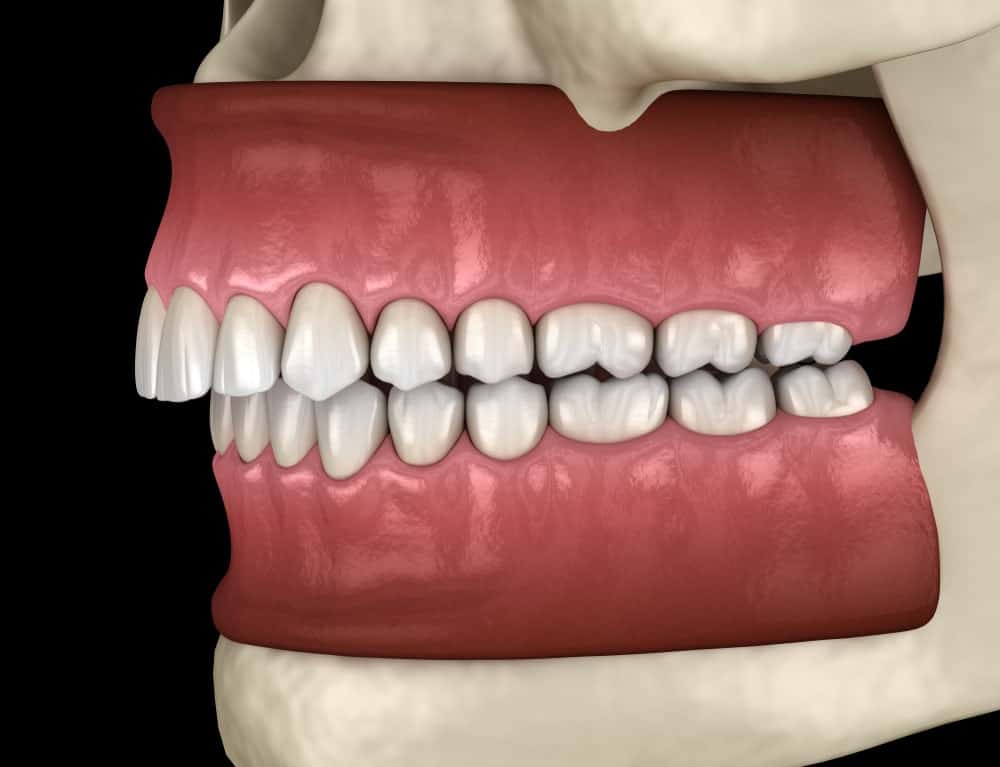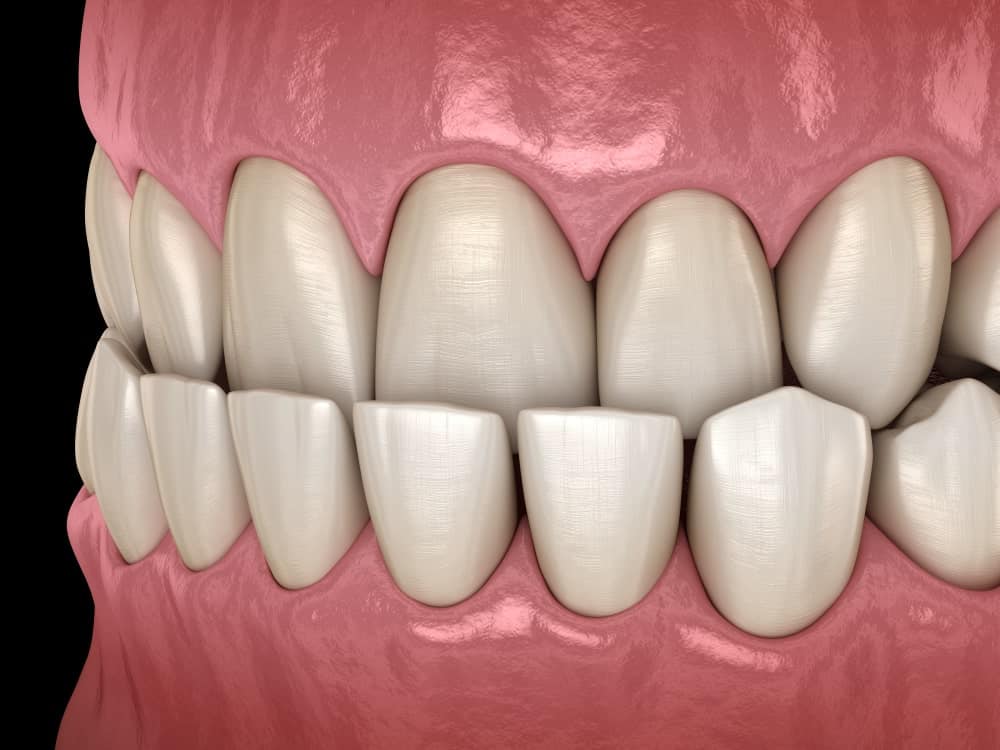If you have crooked teeth and are looking into orthodontic treatment, there are many options for you to choose from. One of these options is Invisalign clear aligners. Invisalign treatment is both discrete and convenient, which has made it a popular choice for many people. By simply wearing your clear aligners for a minimum of 20 hours a day, your teeth will gradually shift into their proper positions.

Not only will Invisalign correct crooked teeth, but it will also correct misaligned bites. Misaligned bites are formally known as malocclusion. Malocclusion can cause a range of dental issues depending on its type and severity. In order to prevent future dental issues, many dentists highly recommend seeking orthodontic treatment to correctly align the bite. Luckily, Invisalign can correct four types of malocclusion:
Cross Bite
A cross bite occurs when the top and bottom jaws simply do not meet up properly due to a lateral misalignment of the upper and lower arches. It is usually characterized by some of the top front teeth sitting inside the front lower teeth. Cross bites almost always require orthodontic treatment because they can cause major issues like gum recession, bone loss, or chipped/cracked teeth. Some crossbites can be treated with Invisalign, however other types may require another treatment approach.
Open Bite
An open bite occurs when the top and bottom jaws do not meet up at all. In cases of open bites, there is generally a gap between the top and bottom teeth. As you can probably guess, this makes biting and chewing highly difficult. By closing your bite through Invisalign orthodontic treatment, your dentist will close the bite and restore proper chewing function.

Overbite
An overbite, or deep bite, occurs when the top front teeth overlap the bottom front teeth by more than 25%. Many people have a slight overbite that is known as class one malocclusion. However, cases over 25% are known as class two malocclusion or retrognathism and usually require corrective treatment to prevent future jaw pain and premature tooth wear.

Underbite
An underbite is basically an overbite reversed. With an underbite, the lower front teeth overlap the top front teeth because the lower jaw is too far forward. Underbites are also known as prognathism and are considered a class three malocclusion. They often make it difficult to chew and speak properly, and may also wear down the teeth. For these reasons, dentists recommend orthodontic treatment to resolve an underbite. While Invisalign can treat underbites, severe cases may also require surgery in coordination with Invisalign treatment.
In conclusion, Invisalign can properly align teeth while also correcting crossbites, open bites, overbites, and underbites. The final result is a smile that looks amazing and functions properly. Correcting malocclusion will also reduce the risk of developing dental issues down the road. However, in order to find out how Invisalign can improve your smile, it is recommended to schedule a consultation with a local Invisalign dentist for more information.

Dr. Dennis Laurich has been practicing dentistry for over 40 years. He received his DDS degree from the University of Michigan Dental School and regularly attends oral health care conventions to continue his dental education. This allows him to treat patients with the leading dental technology and methodologies. Additionally, he is a member of the American Dental Association, Michigan Dental Association, and the Detroit District Dental Society.
Dr. Dale Flanagin II is a distinguished professional in the field of dentistry, holding a Bachelor’s degree in Molecular Biology and Biotechnology as well as a Doctor of Dental Surgery degree. He is committed to improving the lives of others through his work, driven by a lifelong passion for helping people.





